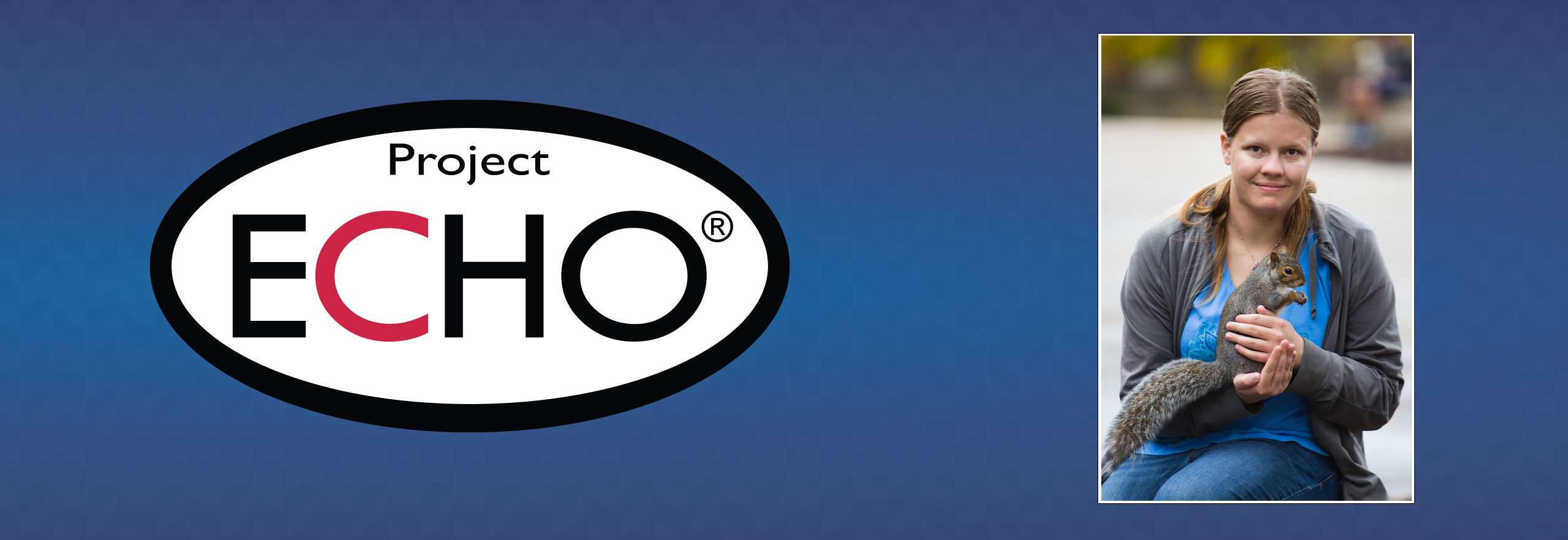Project ECHO Participant Spotlight: Mary Krupa

Project ECHO Spotlight interviews feature advocates, participants or team members discussing their experiences with ECHO. Read more ECHO Spotlights.
Mary Krupa, The ACRES Project
Project Reassure: Fostering Resilience for Neurodiverse Communities
Introduction
Mary was an undergrad student at PSU University Park from 2012-2016, when she graduated with a Bachelor’s in English and a minor in Wildlife and Fisheries Sciences. She is also one of the current facilitators of the “Finding Community” social group for neurodiverse students at Penn State, which is a collaborative effort between Penn State’s Office for Disability Resources, The ACRES Project and the students themselves.
What is the ACRES Project?
The ACRES Project is a small nonprofit organization in State College which was created to “fill the gap” in services for adults with autism. The project has a wide variety of programs to help fill the social, educational, and vocational needs of Autistic adults in Central PA, including an aquaponics greenhouse, crafting/entrepreneurial programs, Paid Work Experience through PA’s OVR, life skills classes, social groups and mentoring. One of the unique things about ACRES is that many of the staff are on the autism spectrum, and programs are often suggested and shaped by the local Autistic community. Mary has been an employee at ACRES since 2017 and is currently in charge of our social media pages, website, newsletter and other outreach efforts.
As one of the hub specialists for the Project Reassure ECHO series, what has been your experience within the sessions?
“As a hub member, I view the presented cases and discuss them along with other participants in the ECHO as an autistic self-advocate. It is interesting to hear everyone’s perspectives on the cases, and so inspiring to see all these people from different backgrounds and areas working together to try to solve problems and help the patient have the best outcome. I envy the patients of our ECHO Hub Team members/participants for having such caring providers! After discussion of a case, one of the HUB team members presents a short didactic about a certain topic, and although I am not a healthcare provider, the information is interesting and helps me understand myself a little better. The environment is very friendly and supportive, and everyone’s suggestions and experiences are heard and valued.”
What does it mean to you to be a part of an ECHO series?
“As a person with autism, it’s very meaningful to be able to share my perspective with the other ECHO participants. I’m glad that ECHO invited me to be a part of it. Although every person with autism is different, being able to view each case through an autistic lens often seems to provide a fresh new perspective to some situations, which hopefully can stimulate some new ideas and foster further empathy for patients. For example, in one of the case discussions, a participant mentioned that a patient wanted her caregivers to be tougher on her when she made mistakes. Many of the other participants in the ECHO thought that this was an odd request, but as a person with autism, I suggested that the patient may simply be unsure of where the social/behavioral boundaries are and may prefer to have clear, concrete feedback in order to feel more secure. I know that when I make a mistake, I am often aware that the other person is upset but don’t always know what I did “wrong” unless the person explains it to me. It can be very stressful knowing that you made a mistake but not knowing what it was, or having to constantly second-guess your own behavior because you aren’t sure if it was appropriate. If the patient has similar worries, she might prefer to have honest feedback on her behavior. From an autistic perspective, it may not be “harsh” or “rude,” just honest.”
If you're having trouble accessing this content, or would like it in another format, please email Penn State Health Marketing & Communications.
